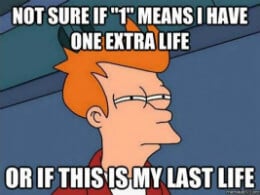I’m quite aligned with what was said : to do a successful game, one needs :
- A nice and creative idea (something “new”)
- Quality over quantity
- Passion put in it
To put a new thought on the table, here is my point of view : my main concern is to be able to combine two things which are hard to combine :
- Having a new and unique idea
- Sharing this idea “for free” with the entire world
Let me explain :
Let’s say Minecraft didn’t exist, and let’s say I had the “idea” of creating Minecraft. And let’s say on top of this, I can technically do it.
Would I succeed ?
Honeslty, most likely, not. Because I would do it on my own. I would be afraid of being stolen my “new and unique idea”. I would code the stuff on my own, getting rid of any ideas and features the (future) users would love to see in my game.
And guess what, that’s exactly NOT what Notch did. Notch (the creator of Minecraft) was giving everything for free. He has built a community where he was sharing ALL he had. People was trying his game, commenting, proposing ideas, reporting bugs, etc, etc… Months after months, thanks to this community, he shaped his game to what would become Minecraft 1.0
And when it was officially launched, well then we all know the success story.
What I mean is that, what Notch did (and MANY others who succedded, like for Tiny Glade) I struggle a lot to do.
But I’m trying to evolve  and that’s part of the reason why I’m very active on this community, and going a lot toward open sourcing stuffs, by the way. I’m working on accepting the fact that any of my code or ideas can be stolen, and trying to convince myself than, like an older friend of mine once said : “Nobody leaves his work and creates a company based on a stolen idea”.
and that’s part of the reason why I’m very active on this community, and going a lot toward open sourcing stuffs, by the way. I’m working on accepting the fact that any of my code or ideas can be stolen, and trying to convince myself than, like an older friend of mine once said : “Nobody leaves his work and creates a company based on a stolen idea”.
![]() . Let me set up the context :
. Let me set up the context :






